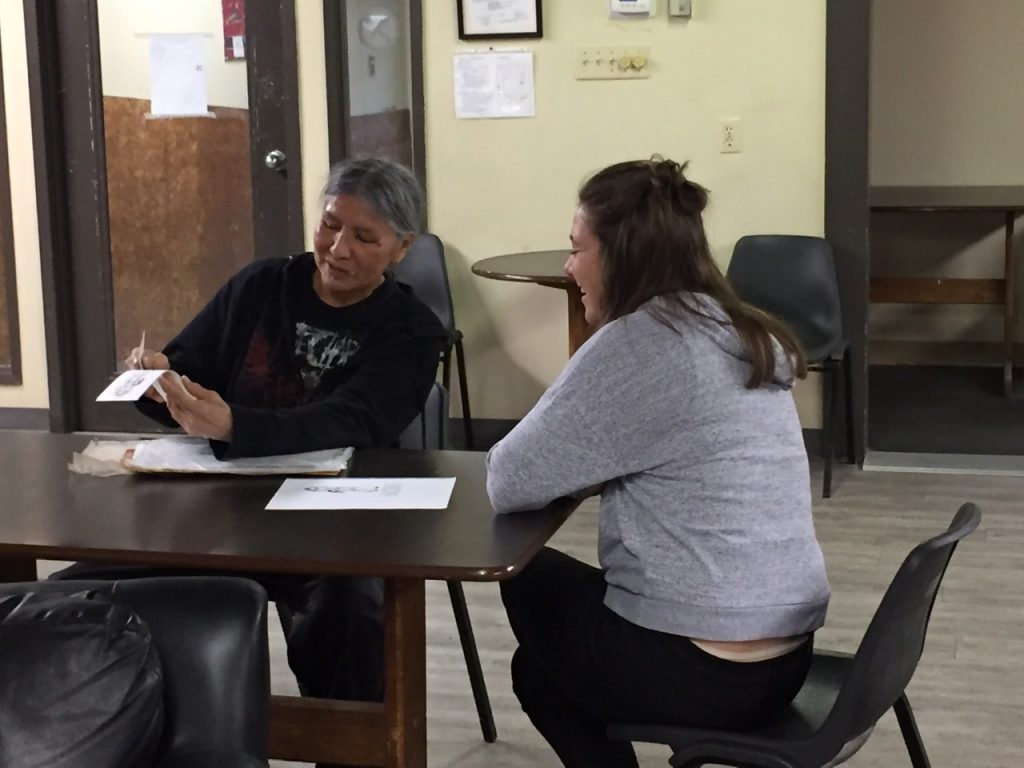Community & Presence (Part 2)
(This is Part II. Follow this link to read “Part I – Being Present“)
Part II – THE GOOD NEWS OF JESUS BEGINS AT THE MARGINS.
My friend Gerry is a Christian. He was raised in the church in Northern Manitoba, has given his life to Jesus (a number of times…you know, just to be sure), and is part of our community. Gerry is knowledgeable about the Bible, very knowledgeable. Gerry also has significant struggles with alcohol. His struggles are part of what keeps him in a state of poverty. His utilizes many of the social services available in the city, the majority of which have connection to some kind of Christian community. The outward manifestation of his addiction means that he is often perceived to be “a mission” of sorts – that his soul needs to be saved. Does his addiction disqualify him from the commitment he has made (many times)? Gerry is often asked to give his life to Jesus. However, what Gerry longs for is a community to walk with him. Now, we recognize that its not just that simple. Addictions disrupt some of the best intentions. But the reality is that if you sat with Gerry and heard his story, you’d recognize that he does not need to convert, he needs people with whom he can journey.
Being present-with marginalized people is part of the church’s faithfulness as a reflection of God’s nature. It reflects the reality that the good news of Jesus began at the margins of society. The good news of Jesus begins with the ‘yes’ of a lowly maiden and a Saviour born in a manger in a small village to a poor family. Jesus’ message was good news to the poor, release for the captive, and freedom for the oppressed. It is out of these lowly means that the good news was birthed. Pope Francis is quoted as saying: “Jesus assured those burdened by sorrow and crushed by poverty that God has a special place in his heart: ‘Blessed are you poor, yours is the kingdom of God.’”
Similarly, God’s desire to seek justice for the stranger, widow, and orphan is made clear in the Pentateuch. Deuteronomy 10:17-19 states:
For the Lord your God is God of gods and Lord of lords, the great God, mighty and awesome, who is not partial and takes no bribe, who executes justice for the orphan and the widow, and who loves the strangers, providing them food and clothing. You shall also love the stranger, for you were strangers in the land of Egypt.
In being deliberately inclusive to marginalized people, we reflect the nature of God, recognizing that we are not a self-made people but are saved, provided for, and delivered by God.
God came to dwell among humanity, bring salvation into their midst, and offer new life. In Jesus, God became flesh and lived among us, extending grace upon grace. In reminding itself of the incarnate presence of God through Jesus Christ, the church remembers its own poverty; the reality that all people find themselves poor and in need of salvation.
So it is not about engaging in transactions in which we provide goods & services but about building friendship. The church befriends marginalized people in the name of the God who befriended all people. This is what makes genuine, honest friendships possible. Friendship within the church is a witness to God’s friendship with us though Jesus Christ. In Ephesians 2:14-20, Paul writes that through Jesus, those things that stood between God and humanity have been removed, reconciling humankind to each other and God. People are no longer “strangers and aliens, but…are citizens with the saints and also members of the household of God” (Ephesians 2:19). Just as God took the initiative in bringing about reconciliation, so too must the church be present-with marginalized people, extending friendship and reconciliation with God and others in order to foster re-creation.

Friendship is one of the ways the church moves beyond seeing marginalized people as objects of charity and begins to see them as part of the community. The nature of friendship is that it flows two ways. In opening the door to friendship with marginalized people, the church begins to shed the notion that they have nothing to offer. In fact, friendship provides exposure to a new narrative that causes the church community to examine its own. The reality is that the narratives in which we live largely go unnamed and unexamined; they simply seem right. Those living within the dominant narrative (the ones who define what is normal & successful) have a particularly difficult time with this. Since they seldom encounter strong opposition, people within the dominant narrative are often blind to the assumptions and a priori expectations they carry, even when they are oppressive.
The church is the coming together of a new people under the authority of Christ. No cultural narrative can be seen as dominant over the other within the church. There is profound danger in having a theology that sees one culture as superior to another. The church’s history shows us what damage can be done when this takes place. We must guard against a theology that carries a culturally oppressive narrative, recognizing that the church’s unity is found in the love of Christ.
Through friendship, the community corporately begins to discern what it means to live out of a kingdom narrative in its context. Out of this discernment, we begin to embrace practises that help us live out the gospel of salvation and be the church in our context.
Part III — PRACTICES OF PRESENCE
